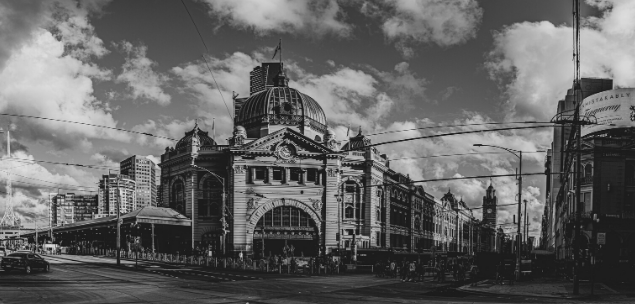Victoria and Melbourne’s metropolitan area started their second lockdown last week, which will last for the next six weeks, as the state saw a spike in coronavirus cases. The unexpected secondary lockdown may have harmed businesses within the hospitality sector to such a extent that it proves fatal.
Melbourne is currently in stage three of lockdown measures after hitting the largest number of confirmed cases last Tuesday (07/07/2020). This means people in the area are only allowed to go out for essentials reasons: food shopping, caregiving, working and exercising.
The primary purpose of the lockdown is to prevent more outbreaks in Victoria’s regional area. However, it means that restaurants and cafes must go back to takeaway and delivery services only. Other hospitality sectors like personal beauty and entertainment venues have also been forced to closed.
‘Soulless’ shopping mall
Among the stores that are closed down is Australia’s iconic retail area Chapel Street Precinct. According to the General Manager there, Chrissie Maus, the next six weeks are “going to be exceptionally hard” for the precinct.
“Mega shopping malls are now viewed by many as being soulless,” she said. “People want authentic. They want Australian, they want unique, they want friendliness, they want the businesses they frequent to be extensions of their own personality.”
Ms Maus explained that with the current rules – that only allow takeaways and deliveries – will decrease the shop’s revenue. According to her, the income that businesses receive in one week of usual operating is equal to four weeks of disrupted service income.
“It’s heartbreaking as the Mum and Dad businesses that are relying on foot traffic will be hurt the most.”
Co-Founder of HungryHungry, Mark Calabro, said that the second lockdown would have a more significant impact than the first one.
Related: ‘Zombie businesses’ big future problem
“We saw about 5% of businesses we were in contact with close as a result of the first lockdown, and unfortunately a lot more businesses are going to be hit, especially if the lockdown lasts the six weeks,” he said.
He further explained that the fact they have to face a second lockdown would impact some business’ owners’ psychology, which will influence their business decision.
“Having to move into a second lockdown so soon after the first is really tough for people,” he said. “We’re now in the middle of Winter here in Melbourne, and the weather reflects people’s moods. Being able to get out into the sunshine for some exercise or play with the kids in the backyard is not really available, so I think that is going to make it even tougher.”
One of the businesses that are getting hit from the COVID-19 is Melbourne’s Grand Trailer Park that hasn’t been open since the lockdown began.
“Grand Trailer Park is based in the heart of the Melbourne CBD and has an American style diner with trailer park features which comes ‘alive’ with customers in it helping to create the vibe,” said one of the Grand Trailer Park team.
“We weren’t just reliant on city workers as our customers. A large portion of our guests were people going to the theatre, football or festivals around town, so the decision to shut with COVID lockdown was really out of our hands. It’s been hard for our team as any momentum we had built quickly evaporated, and we’ve had to let some really great people go,” they said.
The new normal of the hospitality sector
CEO of Kounta, a hospitality software provider, Nick Cloete, thinks that the hospitality industry in Victoria will survive the renewed restriction. This is because many businesses have already created an operational system that is suitable for the pandemic.
“While it’s devastating to hear that Victorian hospitality venues will once again have to close their doors to dine-in customers, the effective processes and systems that have been put in place over the past few months will hold them in good stead to survive this next challenge,” said Cloete.
He further added, “Those venues that have survived (and in some cases thrived) over the past few months are now better equipped to quickly adapt to the changing restrictions.”
Mr Cloete said that the important thing now is how businesses can adapt to the new situation.
“No strangers to a fast-paced, ever-changing environment, hospitality business owners and managers will need to flick the switch back to new, recently learned behaviours, and leverage the tech tools required to meet this demand,” he said.
Agreeing with Mr Cloete, Mr Calabro explained that the work from home culture would be the new normal for employment.
“The period between lockdown one and two showed that many businesses in the city were cautious about having staff return to offices and the concept of ‘work from home’, which for many was a completely new thing, now seems to be part of the normal,” he said.
Despite her previous view of Australia’s shopping culture, Ms Maus also agreed with Mr Cloete.
“More people now living and working from home is a huge opportunity for our local economy. History will show the past three months will be a time of introspection and innovation,” she said. “Right now, there are creative minds around Melbourne who have used their lockdown time to cook up great ideas for businesses.”
She further explained that in the end, businesses at Chapel Street Precinct would benefit from people’s new way of life. Although it is hard for many business owners at the moment, CSPA believes that the current lockdown will revolutionise Australia’s future high street.
“Shop local and supporting Australian made and owned will not only become big trends, but they will also become the standard,” she said. “These businesses will capitalise on people’s new outlook on life, post-COVID. It’s all about lifestyle.”
Keep up to date with our stories on LinkedIn, Twitter, Facebook and Instagram.

